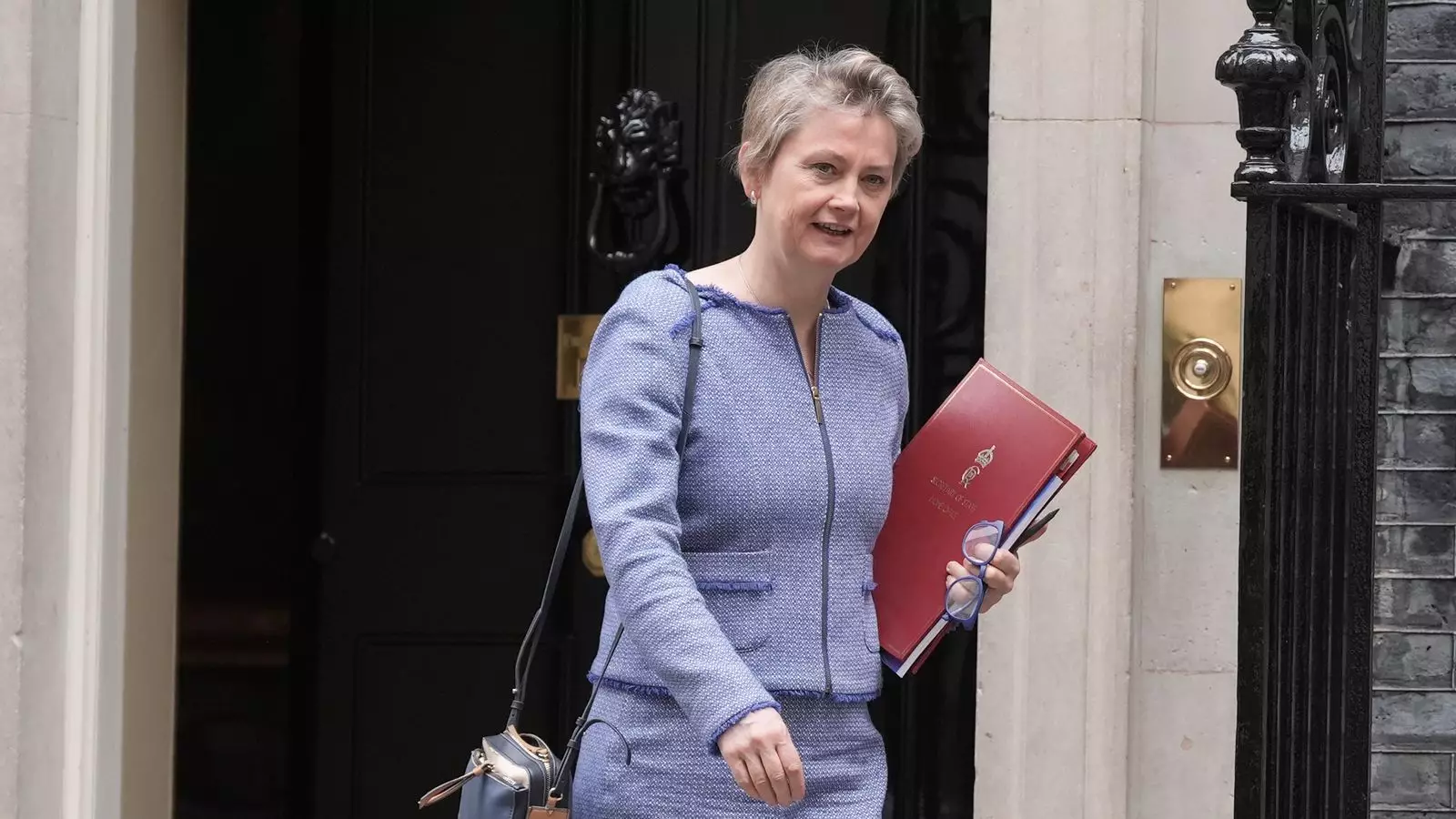The recent announcement of the UK’s “one in, one out” deal with France appears, on the surface, as a pragmatic attempt to curb the alarming influx of migrants crossing the Channel. However, beneath this veneer lies a shallow approach that underscores a fundamental misunderstanding of the migration crisis. Relying on a superficial exchange—returning a migrant for every legal entrant—fails to grapple with the root causes and underlying complexities of migration, making it a band-aid rather than a cure. The decision not to fix precise numbers or set binding targets exposes the deal’s superficial nature, revealing it as a pilot project motivated more by political optics than a long-term viable policy.
The UK’s hesitance to specify exact figures isn’t merely a cautious stance; it’s a tacit acknowledgment that the policy is unlikely to produce tangible results. If the government were confident in its approach, clarity and commitment to concrete targets would be non-negotiable. The fluidity and ambiguity surrounding the numbers suggest an underlying recognition that policy is driven more by reactive measures and international diplomacy than by strategic vision.
Ignoring Structural Flaws: A Flight from Responsibility
This approach rests on a dangerous misconception: that immigration issues can be solved through bilateral agreements and conditional exchanges. But migration is a multifaceted phenomenon driven by global economic disparities, conflicts, climate change, and dysfunctional governance—issues that arbitrary quotas and pay-to-play schemes overlook entirely. The “one in, one out” deal reduces a complex humanitarian challenge to a transactional exchange, ultimately serving political expediency rather than compassion or effective policy.
Furthermore, the deal sidesteps the core problem: the absence of a cohesive, comprehensive migration policy that balances security with humanitarian responsibility. Relying on an uncertain return process risks exposing vulnerable individuals to peril or illegal pushbacks, infringing on international human rights standards. Simply put, it’s a calculated gamble that international law, legal protections, and moral obligations can be brushed aside in the name of Border Control.
The Brexiteer Narrative and Its Impact on Strategy
The debate around Brexit and migration often skirts the uncomfortable truth: the UK’s departure from the EU has significantly reshaped its capacity to manage borders effectively. By blaming Brexit for the surge in small boats crossing the Channel, some political actors conveniently ignore that the UK’s challenges predate the referendum, rooted instead in global migration trends and economic disparities. Macron’s assertion that Brexit has created an “incentive” to cross frames the issue as a direct consequence of political decisions, but it also sidesteps the broader context of human desperation and systemic failures.
The UK’s relinquishment of legal mechanisms such as the Dublin Regulation further complicates matters. This legal framework was designed to ensure responsibility for asylum claims remained with the first EU country of entry. Post-Brexit, the UK finds itself increasingly isolated, unable to rely on coordinated EU responses. Instead of working towards rebuilding a fair, legally robust system—one that respects human rights and ensures safe, legal routes—the government opts for a punitive, short-term approach that criminalizes refugee movements and indulges in political posturing.
The Role of Criminal Smuggling Networks and Power Dynamics
Behind the political negotiations and public rhetoric lie the real culprits: criminal smuggling gangs. These groups have long exploited systemic gaps, inflating their leverage among desperate migrants willing to risk everything for a chance at safety or a better life. The government’s focus on deploying illegal pushbacks and returns doesn’t address these networks’ resilience and adaptability. Instead, it may serve to embolden them, as crackdowns often push operations underground, making them more dangerous and less transparent.
Moreover, framing migrants purely as illegal economic actors ignores the agency and dignity of those fleeing persecution, war, or extreme poverty. The power dynamics are skewed, and policies like “one in, one out” inadvertently legitimize the criminalization of vulnerable individuals while leaving the root economic and geopolitical causes largely unaddressed.
A Required Shift Toward Compassionate Pragmatism
A genuine approach would recognize that migration is an inherently human experience, transcending simplistic transactional models. The UK, as a global actor, needs to embrace a policy framework that combines human rights, international cooperation, and targeted development aid. Investing in regional stability, addressing economic inequalities, and expanding legal pathways for asylum seekers should take precedence over knee-jerk border policies.
Ultimately, the “one in, one out” deal is a flawed narrative peddled by a government reluctant to face the foundational issues of migration. It’s a sign of reactive politics that treats symptoms rather than causes, risking perpetuating a cycle of desperation, injustice, and international fragility. To truly master the challenge, policymakers must accept complexity and responsibility—not hide behind half-measures and unfulfilled promises.


Leave a Reply